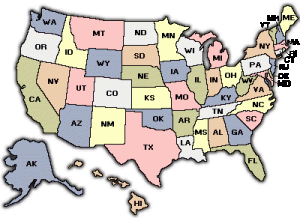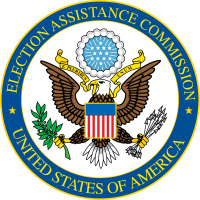THE HISPANIC BLOG IS THE LATEST HISPANIC NEWS BY JESSICA MARIE GUTIERREZ
Maria Teresa Kumar is the founding executive director of Voto Latino, a non-partisan group created in 2004 with the mission to find, register, and turn out young Latino voters in the United States. With Latino Americans poised to make up a considerable slice of the swing-state electorate this year, plenty of operatives on both the right and left are eagerly watching to see which they’ll fall. But Kumar and Voto Latino are after something longer term. With Kumar in Austin to talk at SXSW about social media’s ability to shape a political contest, we talked by phone about online experimentation’s lessons for converting trending topics into action, how President Obama made this election personal, and what it will take to convince Democrats and Republicans to pay attention to Latinos after Election Day. This interview has been condensed and edited.
As perfectly sensible as it might be to focus on voter registration, we seem to have the same conversation every two or four years. There’s work done to engage a group of voters and pull them into the process, and then in the next election cycle it becomes about doing it over again. How much of this work is about the binariness of registration and how much of it is about creating a relationship with a voter that’s sustainable?
Long-term engagement, right. This is based on the findings from the experimenting we did in 2010 with the Census. What we found is that the difference with this demographic — first of all, we target acculturated American Latinos, meaning that they are English-dominant — is that 80 percent of all Latino voters are English-dominant, but that doesn’t mean that there’s a news source that’s actually targeting them. So that’s why we work very closely with celebrities and with media. We have roughly 87 radio DJs who are part of our coalition in our top 25 markets. We use them as messengers to get folks to not only learn about the election but come back to us.
We’re right now creating a site called Election Center: News You Can Use. Our hope is to make it really robust so that not only, say, Rosario starts tweeting about the environment post-election but that her followers look at it and then come for more information about it on our site. And then they get active. Not only did they just read that Congress is about to vote on fracking but now they can go ahead and sign a petition for or against fracking, depending on how they feel, that will then immediately go to their member of Congress. What happens now is that people woo individuals every four years and then they feel like, ‘You invited me to the party, but you didn’t call me the next day.’
But if you were to ask me what the obstacles are going to be to voting this year, it’s not necessarily going to be being registered to vote. It’s going to be that a lot of voter ID laws have changed from 2008. So with the Election Center we’re going to also give you all the information you need to go to the polls.
When you say that a Latino celebrity is going to be tweeting about fracking, that’s not necessarily what people think of as a Latino-focused issue. And if you read anything about Latino voters it’s about how there are a lot of different people with a lot of different backgrounds with a lot of different interests. How do you take the broad-brush approach of registration and apply it to the rest of the process?
The media’s reaction is always that Latinos’ number one issue is immigration. And it’s not immigration. It’s the tone in which people talk about immigration. All of the sudden, you can be a third or fourth-generation Mexican American from Colorado and not really realize you’re Mexican until someone pulls you over and asks you for your papers. That’s a catalyst for political awakening. I use that as an example because in the 2010 election [in Nevada], Sharron Angle, who was running against Senator Reid, basically said that her path to victory was to vilify Latinos. A hundred percent of the media she posted was racially tinged. And that mobilized nine out of ten Latinos to vote against her. But they still voted for a Republican candidate for governor. Yes, they paid attention because of [Angle’s] tone, but when it came to other candidates they voted on the issues.
The same thing for [Arizona state senator] Russell Pearce, who was the architect behind SB1070. The Latino community galvanized around him and recalled him. But they didn’t put in a Democrat. They put in the moderate Republican, someone who was talking to their issues.
When you talk about what mobilizes Latinos most, sadly, it’s when you’re vilifying the community. But if you talk to them about education and jobs in a way that is not condescending and doesn’t end with hasta luego, then you’re going to do pretty well. You do have to talk to them in an authentic way. That’s what’s missing from presidential politics. That’s what Mitt Romney is going to be challenged with. He, up to a point, was so moderate. If Governor Romney was running today he would do incredibly well with the Latino community because he would talk about small business and taxes. Latina women, particularly, are the fastest purveyors of small businesses in the country.
But instead, the election has been so polarized for the right that Romney finds himself moving to a place that he’s going to have a hard time recovering from, I think. If you’re trying engage with someone and they say, ‘Yeah, but I don’t like you,’ then it’s hard to move past that to a conversation about, ‘Okay, what else are you going to do for me?’
What you’re going to see with the 2012 election is that, you see the polls right now where the Latino community is overwhelmingly supporting President Obama over Mitt Romney. But I’m one of the folks who says that they’re doing that because of the tone. If Mitt Romney tomorrow was to change the tone and actually demonstrate what he was going to do for the Latino community — again, what all Americans want, job creation and the economy — it would be a completely different ball game.
In Time’s recent “Yo Decido” issue, Obama campaign manager Jim Messina celebrated the Obama campaign’s ability to turn out Latino voters in the Western states through “grassroots stuff.” Have you seen evidence of the Obama campaign or any other doing targeted outreach to Latino communities?
Not yet, and I say that because I know that the Obama campaign is going to start going into Arizona come April. But they’re not yet full-fledged. They’re going to be deploying a lot of folks, and what they’re going to be coming down heavily with is peer-to-peer conversations similar to what they’ve done in the past.
This election for Latinos is going to be very much a personal one because Obama, sadly enough, has his own baggage. There have been record deportations. So when he goes into Arizona, he’s talking to a voter who may have voted for him last time but now they’ve had a loved one deported. Colorado was a swing state in 2008 and that was because they were passing very rough immigration laws. They were really racially profiling. Now, in Alabama, you have school children being pulled out of the classroom to be asked they’re American or not. If you’re a parent, that becomes personal. Now they’re attacking your family. So in 2008 we had Colorado. In 2012, we have five states that have similar legislation to Arizona. They’re North Carolina, Texas, Florida, Virginia — not surprisingly, key battleground states.
What’s cool is that at the same time they also have an increased electoral power because of the shift in votes. You definitely have this anti-Latino backlash at the state level but you also have this increased political voice that you didn’t have in 2008. Arizona is an example, but it’s an example that has spread that because electoral power is so much more heavily weighted in Latino districts. There’s actually a chance that that’s the clear path to victory.
As you focus on one identity group, even one that has been under-addressed in the past, do you worry that you’re turning the Latino vote into something for the parties to fight for by simply becoming the lesser of two evils, where the bar becomes just not being as big a jerk as the other guy?
Yeah, that’s what the Democrats are thinking. And that’s where their strategy is going to lose.
If I were advising the Democratic party, I’d say that, yes, Republicans aren’t being nice but the Democrats are being cowardly lions. Right now, there’s an open field for them to really go after the Latino community and solidify them. People forget that the Latino vote has been a swing vote since Reagan. They voted for Reagan and then voted for Clinton, then they back for Bush, and then they went back for Obama. Historically, it’s a pendulum. But because of sheer numbers now, if either the Republican Party or the Democratic Party figure out how to solidify them, they can basically become the Dixie Democrats of the 1940s. That hasn’t happened because both parties are timid. They don’t quite understand them.
But if you look at the trajectory of Latino growth, one out of six Americans are Latino. Over 55 percent of the growth in the Census over the last 10 years was due to Hispanic population growth. And it wasn’t immigration. It was the children of immigration.
They’re still so severely underserved, and they’re one of the hardest groups to target. It’s expensive because most of them have never voted before in their lives. For a campaign, they’re the least likely person to go after. Instead of spending two dollars on a progressive white voter all of a sudden you have to spend 25 or 30. There’s a cost to it. It’s harder work, but once you can get them to vote three times they become a life-long voter.
It has to be a continuous conversation. But no one is really having it.
Respect often gets mentioned as a major factor when it comes to Latino voters. Does a Marco Rubio as a vice presidential candidate change that dynamic for the better or come across as pandering?
At this point, it’s pandering.
What I try to communicate is that Latinos fundamentally care about the issues. I use the case of when candidate Barack Obama was running for Senate he ran against a Latino candidate named Gery Chico. And Gery Chico looked like he was going to have overwhelming support in the Latino community. He had great ties. But what candidate Obama was able to do was so well was to talk to the issues of the Latino community. He beat a Latino candidate overwhelmingly. At the end of the day they want to be able to make their lives better.
Since the foreclosure crisis Latinos’ wealth has decreased by 66 percent. It’s sadly competing with that of African Americans. When it comes to the unemployment rate, ditto. We’re talking about double digits when the majority of the country is enjoying eight percent. So the issues are a harsh reality.
But at the same time they’re incredibly optimistic about America’s future, more than any other group. They still have that immigrant experience where they came from countries or their parents came from countries that were so horrible that they still see the vast amount of opportunity and America’s potential here. If I’m a candidate, how did I package that message of, ‘These are my policies on education so that your child can achieve and overcome the hardships you’re facing today’?
Voters are increasingly sophisticated. You do have a swath of voters in the Latino community who are increasingly registering as independent, except for in the last year or so where they’ve been declaring themselves independent but leaning more Democratic.
But that has to do with tone, not because the Democrats are offering them any policy initiatives. They’re just basically not being mean to them and their families.
READ MORE: THE ATLANTIC
SUBSCRIBE to The Hispanic Blog to stay on top of the latest latino news, politics and entertainment!
Don’t be shy SUBSCRIBE – COMMENT – LIKE ME -CIRCLE ME AND FOLLOW ME
If you have any questions, concerns or simply would like to get a quote on my Marketing, Public Relations, Social Media and/or Events services, please feel free to contact me at thehispanicblog@gmail.com.
God Bless and may you have a fabulous day!
powered by Influential Access – “Transforming the Ordinary to EXTRAordinary!” – CEO – Jessica Marie Gutierrez – Creator of The Hispanic Blog #thehispanicblog









Leave a comment